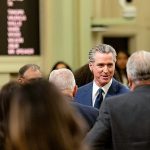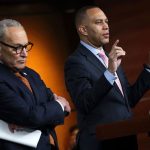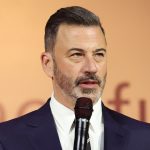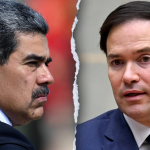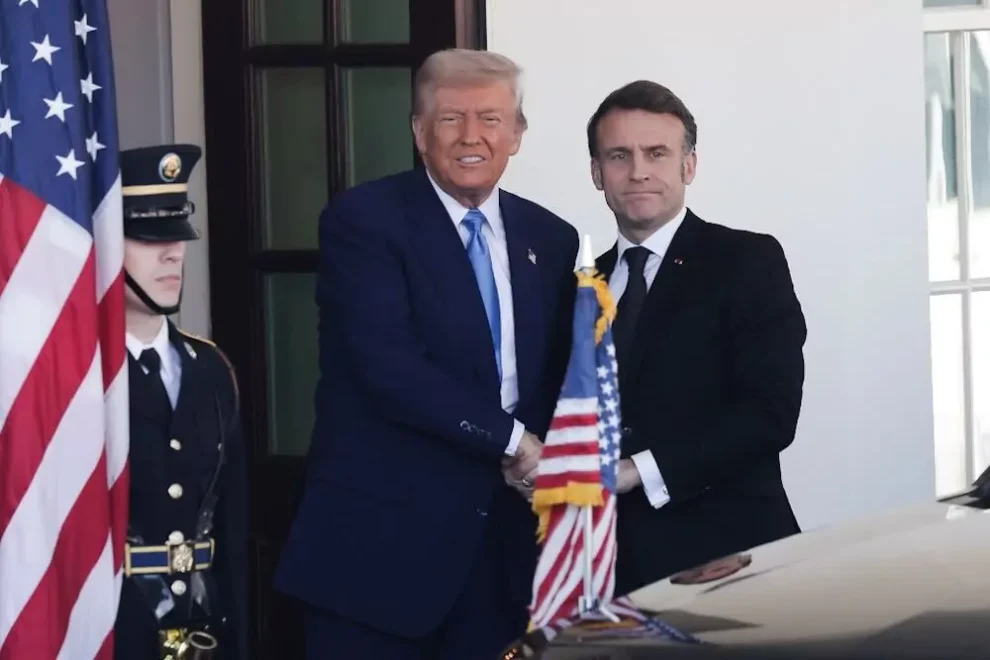President Donald Trump left little doubt Monday that the United States was upending world politics despite a personal appeal from French President Emmanuel Macron.
Macron, who built a personal relationship with Trump during their first terms, became the first European leader to visit the White House after the Trump administration turned foreign policy upside down by negotiating with Russia while sidelining European leaders and Ukraine in peace talks. British Prime Minister Keir Starmer will follow closely on Macron’s heels when he visits Trump at the White House on Thursday.
Macron headed to Washington seeking to address Trump’s “electroshock” to Europe and trying to convince him not to negotiate with Russian President Vladimir Putin alone on ending the Russia-Ukraine war. However, Trump made clear at a press conference that he has no use for past foreign policy norms championed by former President Joe Biden.
TRUMP AND MUSK DO DAMAGE CONTROL AMID ‘SHADOW PRESIDENT’ RUMORS
“My administration is making a decisive break with the foreign policy values of the past administration and, frankly, the past. I ran against a foolish foreign policy establishment and their recklessness led to the death of many, many people,” Trump said alongside Macron.
The president reiterated that, despite his recent comments regarding the war in Ukraine, the goal of Monday’s meeting was to work toward an “end” to the “horrible” war, declaring that he wants his “legacy” to be that of a “peacemaker.”
Unlike many of his current European counterparts, Macron has a long history with Trump, as he entered office just months after Trump was sworn in for his first term in 2017.
“I’m going to tell [Trump]: ‘You can’t be weak with President Putin. That’s not who you are, it’s not your trademark, it’s not in your interest,” Macron said ahead of his trip to Washington.
Macron additionally hosted Trump in Paris following the 2024 election for the grand reopening of the Notre Dame Cathedral, which the president noted at the top of his press conference remarks.
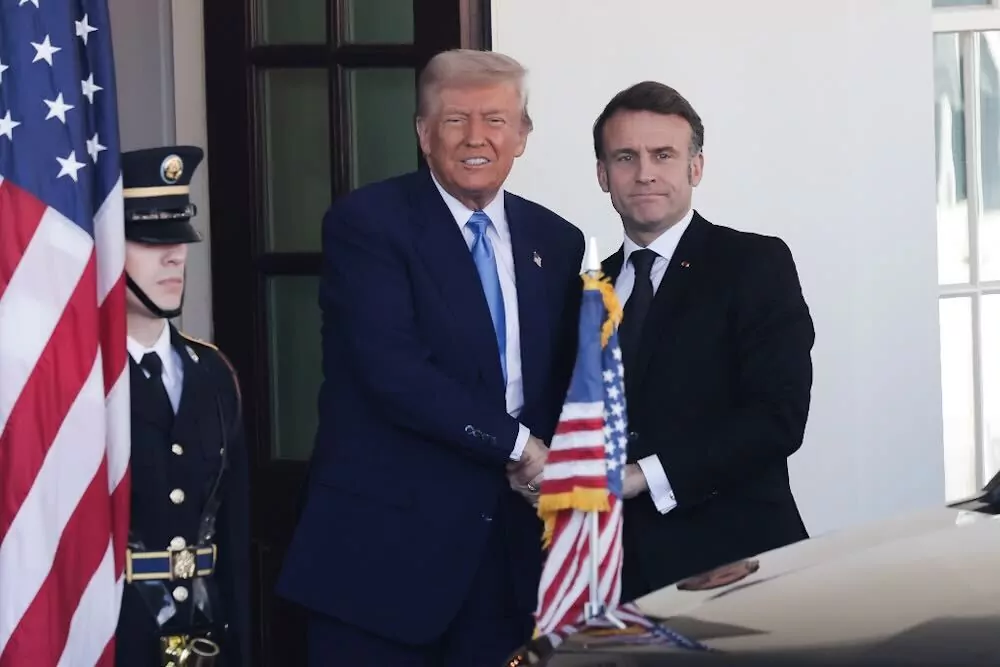
“Five years later, you had it up, and it was, they say, more beautiful than it was before. So I think that’s a great achievement that was not easy,” Trump noted.
Macron repeatedly put past lessons he’d learned about handling the president on display during Monday’s trip, including sharing multiple awkward handshakes with Trump and repeatedly referring to him as “Dear Donald” throughout his remarks.
Monday’s slate presented the first test of Trump’s renewed efforts to reshape the U.S. relationship with NATO, including his resurrected demands for NATO members to increase their defense commitments.
The Macron meeting came as Trump and his Cabinet have begun applying more pressure on Ukraine than Russia to end the war. Prior to the G7 meeting, reports emerged that the White House preferred for the post-meeting statement not to underscore support for Ukraine over Russia. The U.S. also joined Russia on Monday to vote against a Ukrainian and European-backed U.N. General Assembly resolution marking the third anniversary of the war after the U.S. pressured Ukraine to replace the resolution, though the resolution was eventually passed without U.S. support.
The president declined to outline the rationale behind the U.N. vote Monday afternoon, telling reporters simply, “It’s sort of self-evident.”
Beyond the war in Ukraine, Trump’s Monday meetings also focused on his proposed slate of new tariffs on American trading partners. That list includes 25% tariffs on all steel and aluminum imports on top of yet-to-be-finalized reciprocal tariffs for nations with which the U.S. sees a trade deficit or imposes some type of barrier fees on the import of American goods. Trump also signed an executive memorandum on Friday that orders his trade team to develop a new slate of responses to countries, like France, that impose digital service taxes on American tech firms operating within their borders.
TRUMP SLAPS 25% TARIFFS ON STEEL AND ALUMINUM IMPORTS
The president rejected out of hand Monday afternoon that his reciprocal proposal would sour trade relationships with the European Union.
“Whatever they charge us, we’re charging them. So, it’s not a question of increasing,” he told reporters. “If they charge us 20%, we charge them 20%.”
“The American and European economies are extremely intertwined. Some $1.5 trillion in goods and services, and I know you’ve spoken about wanting to look at the balance of payments,” Macron acknowledged through a translator at the press conference. “After speaking with President Trump, I fully believe that there is a path forward. We share the same beliefs. We know what work needs to be done.”
Trump started ratcheting up his rhetoric against Zelensky in recent weeks after Defense Secretary Pete Hegseth announced during a meeting of the Ukraine Defense Contact Group in Brussels that the U.S. does not consider NATO membership for Ukraine to be “a realistic outcome of a negotiated settlement,” angering even some Republicans who argue Trump was undermining Ukraine’s negotiating position before discussions had started in earnest.
Although Hegseth and other administration officials, including national security adviser Mike Waltz, eventually walked those comments back, Trump has continued to escalate his personal conflict with Zelensky, prompting the Ukrainian president to describe his American counterpart as living in a “misinformation” space following Trump’s repeated implications that Zelensky started the war.
Trump has additionally called on Zelensky to hold new elections, claiming he would be a “dictator” without doing so. Ukraine’s government suspended elections under the Ukrainian Constitution because of the war.
Zelensky last week announced he would step down if Ukraine was permitted to become a member of NATO, as he seeks concessions from Trump’s rare earth minerals deal and announced a European Summit, as Trump asks for more European involvement in the way.
That demand comes as Europe, too, experiences leadership changes, as recently as last weekend with Germany electing Friedrich Merz as its likely next chancellor after his conservative party won the national election. Merz has vowed to help give Europe “real independence” from the U.S. as he prepared to cobble together a government.
In a split-screen moment, as Trump met with the G7 and Macron, Putin had his own call with Chinese President Xi Jinping, during which they recommitted to their “no limits” alliance.
At the same time, Trump has reached out to Russia, with Secretary of State Marco Rubio meeting with his Russian counterpart Sergey Lavrov, in addition to national security adviser Mike Waltz and Middle East special envoy Steve Witkoff.
In the aftermath of Hegseth’s comments, the Lavrov meetings, and Vice President JD Vance’s address during the Munich Security Conference, the United Kingdom, and the European Union have announced new sanctions against Russia, while the U.S. chose Monday to announce new sanctions against Iran, in addition to a 30,000-person British and European peacekeeping force to Ukraine.
TRUMP AND MODI HOPE PERSONAL TIES CAN HELP BRIDGE DISAGREEMENTS ON TARIFFS, IMMIGRATION
In fact, before Trump’s bilateral with Macron, the French president corrected his U.S. counterpart over his claims that “Europe is loaning the money to Ukraine” and “they’re getting their money back.”
“No, in fact, to be frank, we paid. We paid 60% of the total effort,” Macron said.

